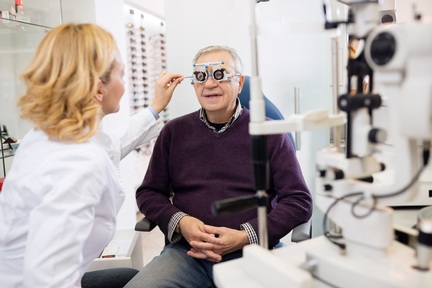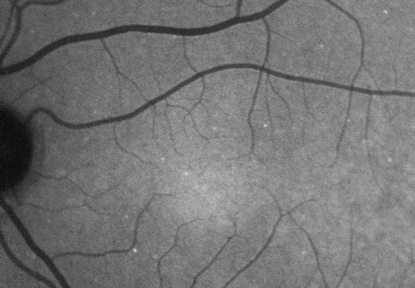Simple eye test for glaucoma could save millions from blindness
A new eye test designed to detect early signs of glaucoma – a major cause of blindness - has been developed by University College London and the Western Eye Hospital.
Glaucoma affects an estimated 60 million people worldwide, with one in 10 experiencing total loss of sight in both eyes.

The new test, enabling doctors to observe nerve cell death in the back of the eye, could lead to the reduction of blindness rates worldwide.
Professor Philip Bloom, chief investigator at Western Eye Hospital, said: “Treatment is much more successful when it is begun in the early stages of the disease, when sight loss is minimal.
"Our developments mean we could diagnose patients 10 years earlier than was previously possible”.
The technique used for the eye test is called DARC, an acronym for ‘Detection of Apoptosing Retinal Cells’, and it uses a fluorescent marker which attaches to protein cells. Any sick cells show up as white fluorescent spots. Researchers hope that even opticians may be able to carry out the test in the future.
Glaucoma is like many other neurodegenerative conditions in the way cells in the retina exponentially decay over time.
It is hoped that the new test will spot any cell deterioration long before the condition physically develops and lead to more successful treatment and drastically reduce the risk of blindness.

Professor Francesca Cordeiro at UCL Institute of Ophthalmology, who led the research, said: “Detecting glaucoma early is vital as symptoms are not always obvious. Although detection has been improving, most patients have lost a third of vision by the time they are diagnosed.
"Now, for the first time, we have been able to show individual cell death and detect the earliest signs of glaucoma.
“While we cannot cure the disease, our test means treatment can start before symptoms begin. In the future, the test could also be used to diagnose other neurodegenerative diseases.”
The trial, funded by Wellcome, was published in the medical journal, The Brain, and responds to the high rate of blindness worldwide.
The test could also bring other benefits, with the potential for early diagnosis of other degenerative neurological conditions, including Parkinson’s, Alzheimer’s and multiple sclerosis.
Bethan Hughes, from Wellcome’s Innovation team, said: “This innovation has the potential to transform lives for those who suffer loss of sight through glaucoma, and offers hope of a breakthrough in early diagnosis of other neurodegenerative diseases. Loss of sight as you age is an incredibly difficult disability, impacting quality of life and independence.”
Latest News
 29-Jul-24
Dementia Bus gives carehome.co.uk staff insight into life with dementia
29-Jul-24
Dementia Bus gives carehome.co.uk staff insight into life with dementia
 01-Mar-24
Find out the top care homes in 2024
01-Mar-24
Find out the top care homes in 2024
 21-Mar-23
UK's top care homes in 2023 revealed
21-Mar-23
UK's top care homes in 2023 revealed
 03-Jan-23
carehome.co.uk launches free care helpline
03-Jan-23
carehome.co.uk launches free care helpline
 13-Dec-22
5 mins with Emily Whitehurst, chief operating officer for Constantia Healthcare
13-Dec-22
5 mins with Emily Whitehurst, chief operating officer for Constantia Healthcare